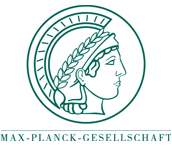Quick Links
Machine Learning in Computational Biology (MLCB) 2011
A workshop at the annual Conference on Neural Information Processing Systems (NIPS 2011) @ Sierra Nevada, Spain, December 17, 2011.
Program:
| 7:30-7:35 | Introduction and Welcome |
| 7:35-7:55 | Unsupervised unwanted variation removal for gene expression data by L. Jacob, J. G. Bartsch and T. Speed |
| 7:55-8:15 | Tumor profile purification using infinite mixture topic models by A. Deshwar, G. Quon and Q. Morris |
| 8:15-8:35 | Simultaneous RNA-seq-based Transcript Inference and Quantification Using Mixed Integer Programming by J. Behr, R. Bohnert, A. Kahles and G. Raetsch |
| 8:35-8:55 | Bayesian model of transcript differential expression in RNA-seq data with biological variation by P. Glaus, A. Honkela and M. Rattray |
| 8:55-9:10 | Coffee and Poster Setup |
| 9:10-9:40 | Poster Spotlight |
| 9:40-11:00 | Poster Session |
| 11:00-4:00 | Break |
| 4:00-4:45 | Invited talk: High-throughput 3D BioImage Informatics and Its Applications by Hanchuan Peng |
| 4:45-5:05 | Automatic identification of brain-layer specific genes from ISH images by L. Kirsch, N. Liscovitch and G. Chechik |
| 5:05-5:25 | Structure and Parameter Learning for von Mises Graphical Models by N. Razavian and C. Langmead |
| 5:25-5:45 | Hierarchical Inference on Single-Molecule FRET Time Series J. W. Van De Meent, J. E. Bronson, J. Fei, R. L. Gonzalez and C. H. Wiggins |
| 5:45-6:00 | Coffee break |
| 6:00-6:20 | Estimating Regulatory Networks from Time Course Gene Expression Data via Adaptive Penalization by S. Basu, A. Shojaie and G. Michailidis |
| 6:20-6:40 | TIGRESS: Trustful Inference of Gene REgulation using Stability Selection by A.-C. Haury, F. Mordelet, P. Vera-Licona and J.-P. Vert |
| 6:40-7:00 | Learning Transcription Factor to DNA Binding Interactions Using Affinity Regression by R. Pelossof and C. Leslie |
| 7:00-7:30 | Panel: Where should we focus our ML efforts? |
| 7:30-7:35 | Closing Remarks by Organizers |
Call for extended abstracts:
- Call for contribution of MLCB 2011
- Submission Due Time: Oct 23, 2011.
- MLCB submission web site (Submissions closed)
- Decision notifications: Nov 3, 2011
Invited Speaker
- Hanchuan Peng , HHMI Janelia Farm, speaking about "3D Bioimage Informatics and Applications"
Sponsors
- The PASCAL 2 Network of Excellence by the European Union
- Microsoft Research
Workshop Description
The field of computational biology has seen dramatic growth over the past few years, both in terms of new available data, new scientific questions, and new challenges for learning and inference. In particular, biological data are often relationally structured and highly diverse, well-suited to approaches that combine multiple weak evidence from heterogeneous sources. These data may include sequenced genomes of a variety of organisms, gene expression data from multiple technologies, protein expression data, protein sequence and 3D structural data, protein interactions, gene ontology and pathway databases, genetic variation data (such as SNPs), and an enormous amount of textual data in the biological and medical literature. New types of scientific and clinical problems require the development of novel supervised and unsupervised learning methods that can use these growing resources. Furthermore, next generation sequencing technologies are yielding terabyte scale data sets that require novel algorithmic solutions.
The goal of this workshop is to present emerging problems and machine learning techniques in computational biology. We invited several speakers from the biology/bioinformatics community who will present current research problems in bioinformatics, and we will invite contributed talks on novel learning approaches in computational biology. We encourage contributions describing either progress on new bioinformatics problems or work on established problems using methods that are substantially different from standard approaches. Kernel methods, graphical models, feature selection, and other techniques applied to relevant bioinformatics problems would all be appropriate for the workshop. The targeted audience are people with interest in learning and applications to relevant problems from the life sciences.
Computational biology currently attracts great interest in the NIPS community, but there is still no yearly forum for advances in machine learning for computational biology within existing conferences in the two fields. Over the past few years, we have been working to establish this workshop as a recurring annual meeting in order to provide such a forum. In addition to having continuity among the organizers, we have enlisted a distinguished program committee to ensure that diverse work of the best quality is represented at the workshop. Typically, at least one invited speaker has been a prominent molecular biologist, with the goal of introducing the audience to emerging problems, technologies, and data sources from a biological viewpoint. We have previously organized BMC Bioinformatics special issues with work presented at the workshop, to increase the visibility of learning methods in computational biology. We have also attracted funding from the EU PASCAL2 network to support invited speakers and video recording of the talks for publication on videolectures.net.
Program Committee (tentative)
- Karsten Borgwardt, Max Planck Institute
- Gal Chechik, Gonda brain center, Bar Ilan University
- Florence d'Alche-Buc, Université d'Evry-Val d'Essonne, Genopole
- Nir Friedman, the Hebrew University of Jerusalem
- Alexander Hartemink, Duke University
- David Heckerman, Microsoft Research
- Michael Jordan, UC Berkeley
- Samuel Kaski, Helsinki Institute for Information Technology
- Michal Linial, The Hebrew University of Jerusalem
- Quaid Morris, University of Toronto
- Klaus-Robert Müller, Fraunhofer FIRST
- William Noble, University of Washington
- Alexander Schliep, Rutgers University
- Koji Tsuda, National Institute of Advanced Industrial Science and Technology (Japan)
- Eric Xing, Carnegie Mellon University
- ... and all the organizers (see below)
Organizers
- Anna Goldenberg , SickKids Research Institute program of Genetics and Genome Biology (Canada)
- Tomer Hertz , Fred Hutchinson Cancer Research Center (USA)
- Christina Leslie , Sloan-Kettering Institute (New York, USA)
- Yanjun Qi , Machine Learning Department, NEC Labs America (Princeton, USA)
- Gunnar Rätsch , Friedrich Miescher Laboratory, Max Planck Society (Tübingen, Germany)
- Jean-Philippe Vert , Centre for Computational Biology, Mines ParisTech (Fontainebleau, France)
MLCB 2011 is going to take place at Sierra Nevada, Spain, December 16 or 17, 2011.
These pages are kindly hosted by the Friedrich Miescher Laboratory of the Max Planck Society.
- Hanchuan Peng , HHMI Janelia Farm, speaking about "3D Bioimage Informatics and Applications"


